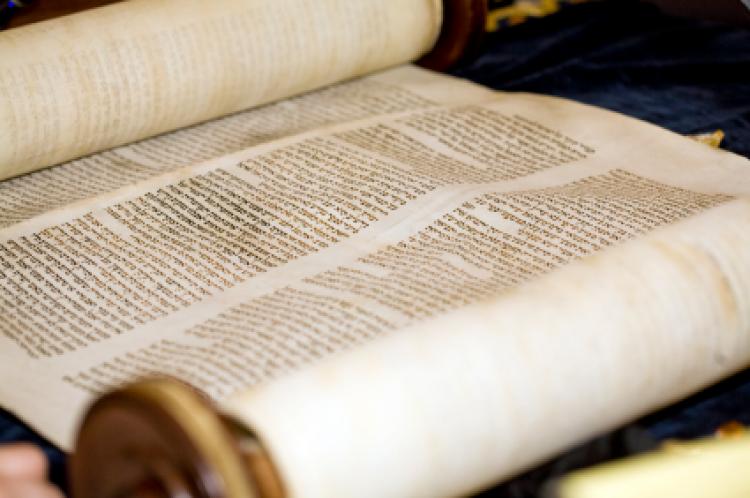
Do You Get a Black Moon?
What is a Black Moon, and why does it happen in December?
Five sad events in Jewish history occurred on the ninth day of the month of Av. These include the destruction of the First and the Second Temple. The anniversary is marked by a day of mourning, prayer, fasting and abstinence from certain activities.

Torah study is forbidden on Tisha B'Av except for sad texts such as the Book of Lamentations.
©iStockphoto.com/Robert Simon
The period known as the Three Weeks begins on the 17th of Tammuz and ends on Tisha B' Av. Many Orthodox Jewish people do not cut their hair or hold weddings during this period. They also do not eat meat, drink wine or go to concerts during the nine days before Tisha B' Av.
Tisha B' Av is a day of mourning, fasting and prayer. There are five main prohibitions, which are:
It is not allowed to study the Torah, except for sad texts. Old prayer books and Torahs may be buried. Some restrictions, such as not eating meat or drinking wine, continue until noon (12:00) on the day after Tisha B' Av.
It is customary to sit on the floor or low stools and to sleep on the floor or without a pillow on Tisha B' Av. Some Jewish followers may spend most of the day reading or chanting kinnot (kinnos, kinoth, qinot, qinoth). Kinnot are mourning poems or poems describing sad events such as the destruction of the Second Temple, the crusades, and the holocaust. Some Jewish groups only mourn events that happened a long time ago on Tisha B' Av and mourn the events of the Holocaust on Yom HaShoah.
Tisha B' Av is not a public holiday in Australia, Canada, the United Kingdom or the United States. However, some Jewish organizations may be closed or have restricted opening hours to allow special events to be held.
Tisha B’Av, also known as the Jewish Fast of Av, is a period of fasting, lamentation and prayer to remember the destruction of the First and Second Temples of Jerusalem. The Jewish people still continued the fast day even after they rebuilt the First Temple after the Babylonians destroyed it in 586 BCE. The Romans destroyed the Second Temple by burning it in 70 CE and this marked the start of a long exile period for Jewish people. These are two of five sad events or calamities that occurred on the ninth day of the month of Av. The other three were when:
Tisha B’Av is a sad day that observes other major disasters and tragedies that Jewish people experienced throughout history, including the expulsion of the Jewish people from England in 1290 and from Spain in 1492, as well as the mass deportation of Jewish people from the Warsaw Ghetto during World War II.
The degree of observing Tisha B' Av varied through the centuries. It was observed less stringently around 100 CE to 200 CE, but more strictly and widespread around 1000 CE to 1200 CE. After the establishment of Israel as a Jewish state in 1948 and the reunification of Jerusalem in 1967, some groups proposed that Tisha B' Av should no longer be a day of mourning and fasting.
It is important to note that if the ninth day of Av falls on a Saturday (Shabbat), the fast is observed on the tenth day of the month of Av.
In the Jewish diaspora—Jewish communities outside of Israel—an extra day is usually added to religious observances, with the exception of Yom Kippur, which lasts only one day worldwide, and Rosh Hashana, which is celebrated over two days in both Israel and the diaspora.
This custom has its roots in ancient times when the beginning of the months in the Jewish calendar still relied on the sighting of the crescent Moon following a New Moon.
The beginning of a new month was determined by the Sanhedrin, the supreme court of ancient Israel in Jerusalem. Once the date was published, messengers were dispatched to spread the news among Jews living abroad. Since this process took some time, it was decreed that Jews outside of ancient Israel were to observe every holiday for 2 days to make sure that the rules and customs applicable to each holiday were observed on the proper date. This rule is still observed today.

What is a Black Moon, and why does it happen in December?

When will the next comet be visible?

Why do mornings keep getting darker after the December solstice?

How does the 12-hour clock system work? Is midnight 12 am or 12 pm?